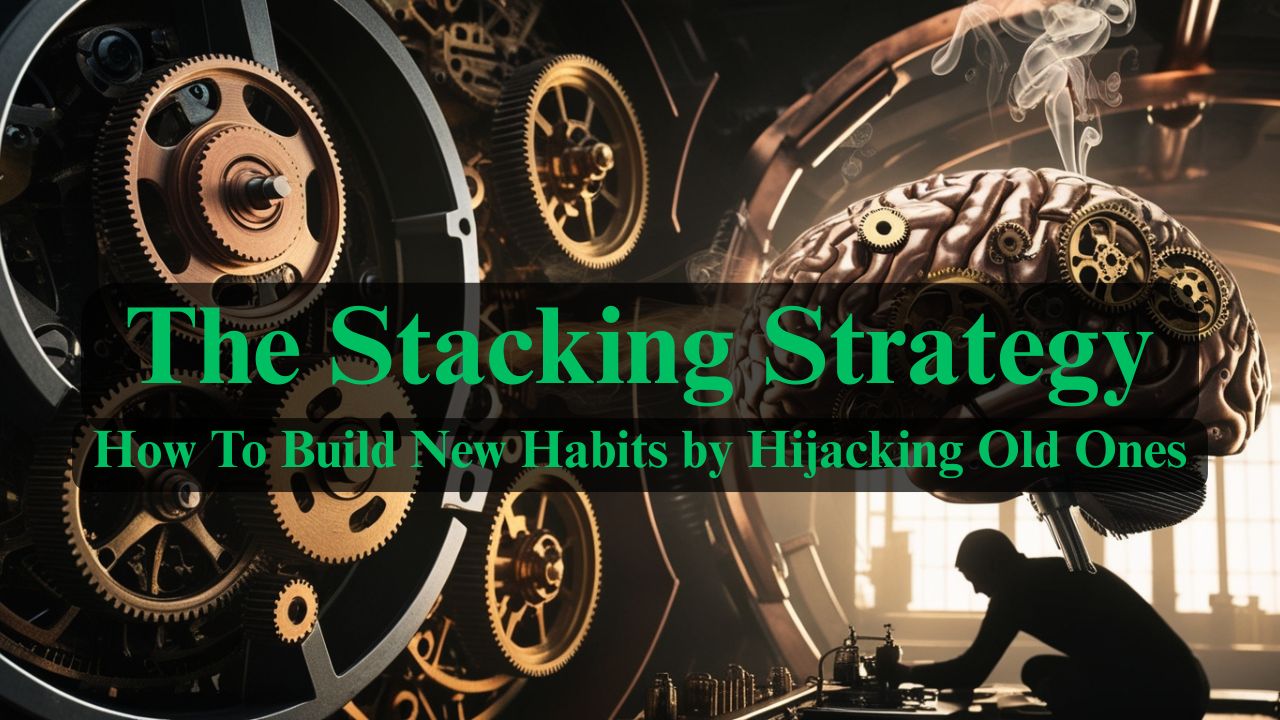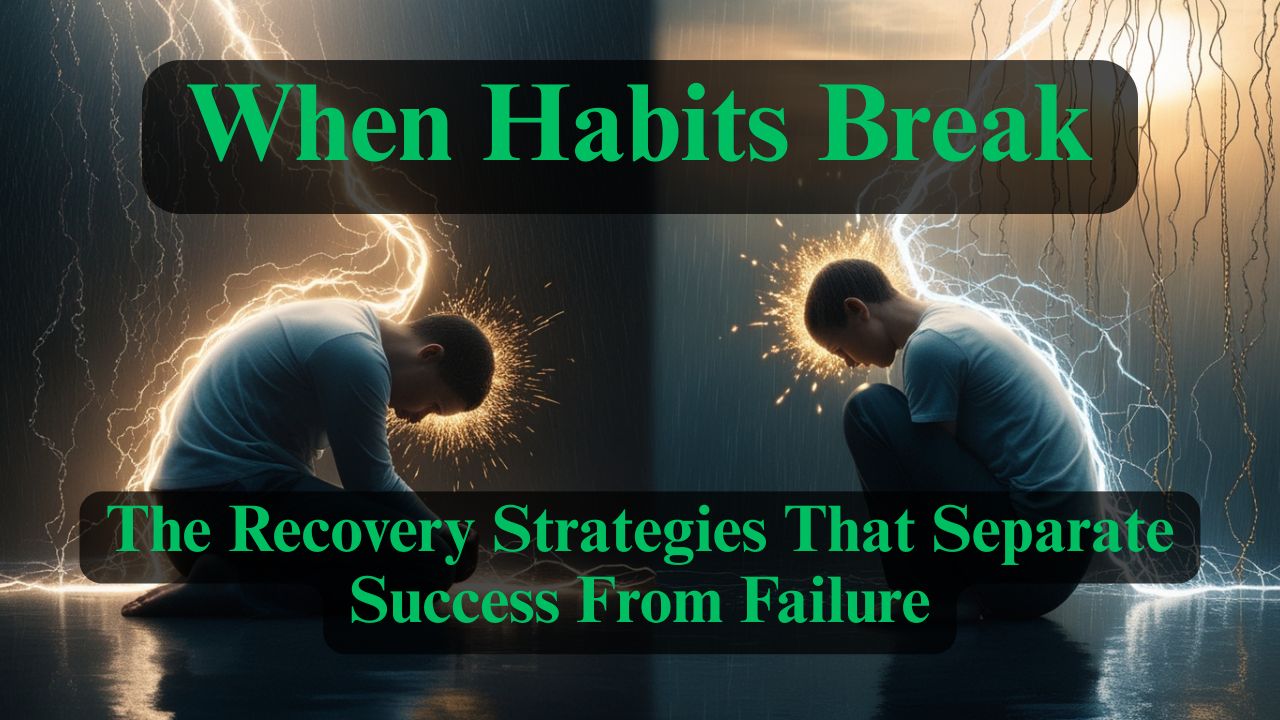Self-Control vs. Self-Sabotage: How to Stop Undermining Your Goals
In the pursuit of personal growth and success, one of the biggest challenges we face is managing our own behaviors. Often, we are our own worst enemies. Self-sabotage is a common hurdle many encounter—whether it’s procrastination, negative self-talk, or impulsive actions that derail progress. The struggle between self-control and self-sabotage can be intense, but understanding this dynamic is the first step toward overcoming it and achieving your goals.
What is Self-Sabotage?
Self-sabotage is when we consciously or unconsciously engage in behaviors that hinder our success. These actions work against the goals we have set, and often, we don't realize we're sabotaging ourselves until we see the negative results. It could be procrastinating on an important project, choosing instant gratification over long-term success, or allowing negative thoughts to take over, leading to a lack of motivation.
While self-sabotage may seem like an insurmountable obstacle, it’s important to remember that these behaviors often stem from deeper feelings like fear of failure, insecurity, or a lack of self-worth. These emotions may trick us into thinking that we’re protecting ourselves from disappointment or that avoiding the task is a way to avoid failure.
How Self-Control Helps You Avoid Self-Sabotage
On the other side of the spectrum, self-control is the ability to regulate your emotions, thoughts, and behaviors in the face of temptations and impulses, and it’s critical for overcoming self-sabotage. It involves making choices that align with your long-term goals, rather than giving in to short-term urges. Self-control doesn’t mean denying yourself pleasure or relaxation; rather, it’s about balancing your desires with your broader objectives, ensuring that you make decisions that move you forward instead of holding you back.
The Conflict: Why Do We Self-Sabotage?
The answer lies in the psychology of human behavior. While we consciously desire success and growth, our subconscious mind may feel threatened by the unknowns or difficulties that come with pursuing our goals. For example:
1. Fear of Failure: We may sabotage our own efforts to protect ourselves from the fear of failing. By not even trying, we avoid the potential pain of rejection or disappointment.
2. Low Self-Worth: If we don't believe we deserve success, we may make choices that keep us stuck in mediocrity.
3. Comfort in the Familiar: Even if it’s unhealthy, the comfort of familiar habits can be easier than breaking through the discomfort of change.
4. Instant Gratification: Often, the lure of immediate pleasure outweighs the long-term benefits of staying on track. We might choose short-term rewards (like binge-watching TV or eating junk food) instead of focusing on the bigger picture.
Recognizing these behaviors is key to changing them. By acknowledging that self-sabotage often arises from fear, insecurity, or the comfort of routine, we can begin to address these issues and work toward healthier, more productive habits.
How to Stop Self-Sabotage and Strengthen Self-Control
1. Recognize the Signs of Self-Sabotage The first step is to identify when you are sabotaging yourself. Pay attention to patterns like procrastination, self-doubt, or avoidance. When you catch yourself in the act, take a step back and examine the underlying thoughts or emotions driving those behaviors.
2. Set Clear, Achievable Goals Often, self-sabotage arises from the feeling of being overwhelmed. If your goals are too vague or unrealistic, it’s easy to put them off or avoid them altogether. Break your larger goals into smaller, achievable tasks, and focus on completing one small step at a time.
3. Replace Negative Thought Patterns Negative self-talk is one of the most common forms of self-sabotage. When you catch yourself thinking, “I’ll never be able to do this” or “I’m not good enough,” challenge those thoughts. Replace them with more empowering, positive affirmations like, “I am capable,” or “Every small step brings me closer to my goal.”
4. Practice Mindfulness and Emotional Awareness Mindfulness is a powerful tool for self-control. By being aware of your emotions and impulses in the moment, you can make more intentional choices. When you feel the urge to procrastinate or indulge in unhealthy habits, take a few deep breaths, and check in with yourself. Ask, “What do I really want right now? What will help me achieve my long-term goals?”
5. Reward Yourself for Small Wins Self-control doesn't mean denying yourself rewards altogether. Celebrate your small victories and milestones. Positive reinforcement can help build momentum and increase your motivation to stay on track.
6. Develop Healthy Habits Often, self-sabotage occurs because we’ve formed unhealthy habits over time. The good news is, habits can be changed. By consciously replacing negative habits (like procrastination or unhealthy eating) with positive ones (like setting aside time for focused work or cooking nutritious meals), you begin to shift your behavior and reinforce self-control.
7. Visualize Your Success Picture yourself succeeding. Visualization can boost your motivation and strengthen your resolve. See yourself accomplishing your goals, enjoying the benefits of your hard work, and living the life you want. This imagery can keep you focused and motivated to avoid self-sabotaging behaviors.
8. Seek Support and Accountability Sometimes, we need others to help us stay on track. Whether it’s a mentor, a coach, or a friend, having someone to hold you accountable can make a big difference in reducing self-sabotage. Share your goals and progress with them, and let them help you stay motivated.
9. Be Kind to Yourself Finally, practice self-compassion. We all make mistakes and experience setbacks. Instead of beating yourself up when things don’t go as planned, treat yourself with kindness. Learn from your mistakes and keep moving forward. Self-compassion helps prevent the guilt and shame that often lead to further self-sabotage.
Conclusion
Self-sabotage can feel like a powerful force working against your goals, but it’s important to remember that self-control is an even more powerful tool. By recognizing the ways you undermine your own success and taking steps to strengthen your self-control, you can break free from this cycle. Practice mindfulness, challenge negative thought patterns, and build healthier habits to keep yourself on track. Self-sabotage might try to hold you back, but with determination and self-control, you have the power to reach your goals and unlock your full potential.
- Audio Articles
- Audio Articles 1
- Audio Articles 2
- Audio Articles 3
- Audio Articles 4

7 Daily Disciplines That Transform Your Life
The power to act with intention, to align your actions with your values, and to move steadily toward a life of purpose—even on days you don't feel like it.
Read Full Article
How to Build Unbreakable Discipline
Discipline is built—habit by habit, choice by choice, day by day. And the most powerful kind? The kind that doesn’t crack under pressure. The kind that becomes part of who you are.
Read Full Article
Why Motivation Fails And Discipline Wins Every Time
We all love the feeling of motivation—that surge of energy, that rush of inspiration that makes everything seem possible. But here’s the problem: motivation is unreliable. It’s emotional. It comes and goes. And if your goals rely on you “feeling like it,” you’re already in trouble.
Read Full Article
Discipline Over Desire
Desire is loud. It burns bright, talks fast, and loves to dream. But desire alone doesn't achieve much. Every person has desires. Very few have the discipline to bring them to life.
Read Full Article
The Science of Sticking
If you've ever tried to build a new habit, you've probably heard that it takes 21 days. This number gets thrown around so often that it feels like scientific fact.
Read Full Article
The Stacking Strategy
What if I told you that the habits you already have—even the ones you consider "bad"—could become the secret weapons for building the habits you want?
Read Full Article
When Habits Fail - The Recovery Strategies That Separate Success From Failure
Here's what nobody tells you about building habits: you will fail. You'll miss days. You'll fall off track. You'll have weeks where everything falls apart.
Read Full Article
The Ultimate System - Designing a Life Where Good Habits Are Inevitable
You've learned to recognize habits, understand their formation timeline, stack them strategically, and recover from setbacks.
Read Full Article




















